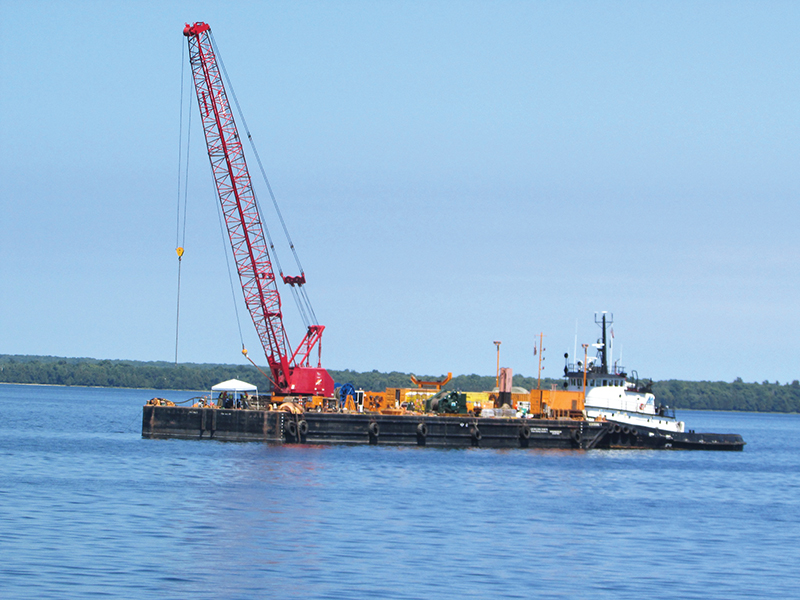Washington Island: On the Road to Recovery

In the early hours of June 15, Washington Island Electric Cooperative, a 900-member distribution system in northeast Wisconsin, located just below the Upper Peninsula on Lake Michigan, lost power from the 20,000-foot submarine cable connecting it to the mainland.
Backup diesel generators quickly restored power to members—and summer tourists—but a long-term fix proved impossible because the cable had been damaged over the years by ice shoves. A temporary patch was made, and plans were drawn up to replace the nearly 40-year-old transmission line.
Emergency Line of Credit Helps Co-op Move Quickly
But estimates for cable repair and replacement ran about $3.8 million—a significant sum for the small system. To get the project moving, CFC quickly approved a $4 million emergency line of credit, which the cooperative has tapped to pay initial costs.
“Dealing with CFC was reassuringly easy,” says Washington Island Electric Cooperative General Manager Robert Cornell. “We had enough to worry about in keeping the lights on and figuring out next steps without the added concern of where money would come from.”
One complication involved the cooperative’s desire to re-route the cable to make it less susceptible to future ice damage. The preferred route crossed Plum Island, part of the Green Bay National Wildlife Refuge and on the National Register of Historic Places. A raft of permits were required, including from the U.S. Fish and Wildlife Service, the U.S. Army Corps of Engineers and other agencies. Fortunately, the powers-that-be were accommodating.
Would Regulatory Approvals Arrive Before the Ice Set In?
“We’ve received support from all of our state and federal legislators as well as from town and county governments,” Cornell notes. “Our statewide—the Wisconsin Electric Cooperative Association—pitched in and the Fish & Wildlife Service was nothing short of fantastic.”
The cooperative found itself in a race to get regulatory approvals issued and new cable manufactured, delivered and installed before Lake Michigan froze over. Work on the shore landings and Plum Island crossing wrapped up in October. The submarine cable is scheduled for delivery this month, with installation and energization taking place within weeks—if all goes well.
The biggest challenge, though, remains the roughly $4 million project price tag, which Cornell calls, “A painful amount of money.” In July, Wisconsin Governor Scott Walker approved a disaster declaration for Washington Island, which opens the door for the cooperative to receive state and federal aid. “The disaster declaration gained us some attention,” Cornell comments, “but does not guarantee any assistance.”
When Disaster Strikes, CFC Is There
Thinking back on the early days of the power outage, Cornell said a big part of the successful recovery effort was being able to lean on already established relationships. “Probably the most important thing is to know your industry groups and your legislators, and they should know you. When it comes to seeking help in a disaster situation like ours, it’s nice not to have to make introductions.”
He adds: “Having a lender like CFC backstopping us has been incredibly important. CFC knows us, and has been right there for us from day one.”